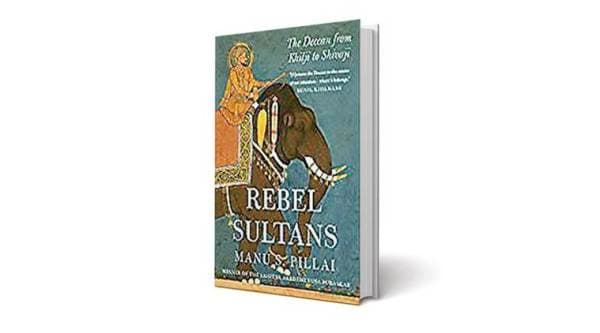Royal Playground
In his second book, Manu S Pillai explores the Deccan through the many rulers who engaged with it

Title: Rebel Sultans: The Deccan from Khilji to Shivaji
Author: Manu S Pillai
Publisher: Juggernaut
Pages: 336
Price: Rs 599
Author: Manu S Pillai
Publisher: Juggernaut
Pages: 336
Price: Rs 599
A March 2016 review in these columns described Manu S Pillai’s The Ivory Throne: Chronicles of the House of Travancore as a “gem of a book which is both an interesting read and a significant addition to existing work on Indian princely states”. Two years after that 700-page, Sahitya Akademi Yuva Puraskar-winning debut, Pillai has produced what he calls a “short, readable account” and a “modest overview” of the medieval history of the Deccan.
Such histories often begin with Shivaji, says Pillai, and all that happened in the Deccan in the 350-odd years before the rise of the Marathas is “much neglected in the retellings of India’s past”. Professional historians could disagree — but the interested non-specialist to whom the names of Alauddin Khalji, Muhammad bin Tughlaq, Babur, Akbar and Shah Jahan are more familiar than, say, Ibrahim Adil Shah, Quli Qutb Shah, Chand Bibi, Malik Ambar, and possibly even Krishnadeva Raya, probably would not.
Pillai’s book is primarily a political history, and so, its pages are populated thickly with “remarkable men and women who all claimed for themselves the esteem of posterity”, a riotous swarm that he has distributed in imaginatively-titled chapters that follow the chronology of the main dynasties and some key individuals in the Deccan c. 1300-1700. There is a bias towards the sensational and the dramatic; incidents that would probably not find place in histories of a higher or graver ambition keep popping up with fairly certain regularity —there are, therefore, characters like the “perfidious courtier who promised (a Sultan) the embraces of his daughter”; and incidents like the one in which Krishnadeva Raya, expecting to find Ismail Adil Shah “prostrate with lips in readiness to perform (on his feet)”, was disappointed by the vanquished Adil Shah who refused to be a sport and “kiss any part of the invader’s body” and chose to flee instead.
It is all rather delightful, but the real hero of this all-star drama is the Deccan itself, the oldest part of the subcontinent that “to the world was uniquely Indian, (but was) to India, a mirror of the world”. It is this tribute that Pillai begins and ends with — and which runs as the connecting thread through the length of his book. The Deccan, to Pillai, is not just the setting of his book and the theatre of the drama he describes, but a character by itself, at once open and shut, complex and temperamental, bountiful and unforgiving. It is through the stories of his numerous other characters that Pillai seeks to flesh out the outlines of his fascinating chief protagonist.
A lot of the content of Rebel Sultans draws from the work of earlier historians of the medieval Deccan. Pillai is a gifted writer, with an exceptional ability to curate the scholarship of a galaxy of venerable masters for a script that would be attractive to his target readers of today. Among the experts that he returns to frequently for both historical fact and intellectual direction are Richard Eaton, John Richards and Sanjay Subrahmanyam, besides Haroon Khan Sherwani and PM Joshi. His debt to Eaton in particular shines through, even in the acceptance that Rebel Sultans “stands on the shoulders of the works of many generations of scholars”— almost the same language of acknowledgment that Eaton himself used in A Social History of the Deccan, 1300-1761: Eight Indian Lives.
Pillai’s second book is not as weighty, literally and figuratively, as his first, a sweeping, multiple-narrative telling of Kerala’s engagement with the first colonial invaders. It does not have much new insight or analysis and presents no original framework of understanding. It is a manifestly less ambitious project that dances around the more complex questions of historical scholarship that would conceivably weigh down his style and purpose. But that does not make Rebel Sultans any less hardworking — 58 pages of notes and 13 pages of bibliography attached to 220 pages of main text are impressive by any standard. And it is dazzling storytelling. Pillai has employed an extraordinarily powerful imagination and a prodigious talent with words to write a genuine thriller that is near impossible to shut before reaching the end. Finally — and this must be said — unlike some joke historians who have of late inflicted insufferable, and at times dangerous, bilge on us, Pillai’s style, in addition to its gloriously evident flamboyance, is also both honest and intelligent, and entirely devoid of any pompous pretence.
For all the latest Lifestyle News, download Indian Express App






















No hay comentarios:
Publicar un comentario